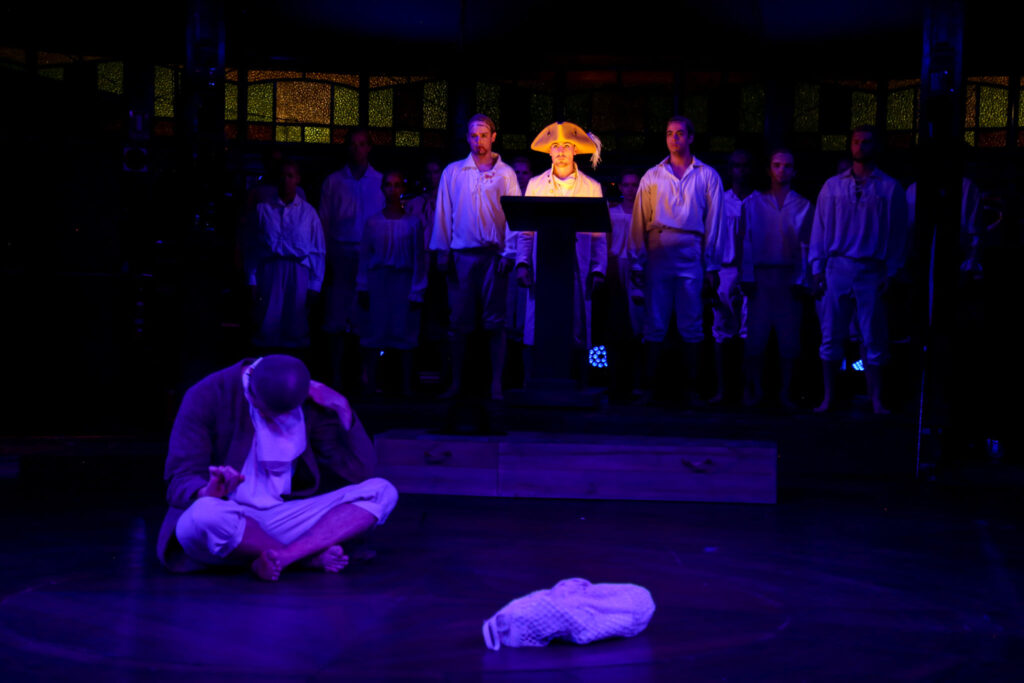Directed by:
Sam Chester
Cast:
Sebastian Belmont (Lead)
George Vickers
Gulliver McGrath
Angelica Lockyear
Darren Kumar
Chaya Ocampo
Emilia Corlett
Ana Ike
Zoe Morgan
Mitchell James
Tim Ogborne
Jack Twelvetree
Abby Morgan
Harry Pearse
Briana Esme
Madeline Dona




a lethally funny play that narrated the changing fortunes of a Chicago neighbourhood from the 1950s to the present day – Norris is fascinated by the intersection of property and race, but here he operates on a bigger canvas, taking on the nature of capitalism. Our narrator-host is Adam Smith, the Scottish advocate of laissez-faire economics, who steers us through the extraordinary story of two men whose lives become inextricably linked. Jim Trumpett, supposedly the bastard son of George Washington and reared in a Massachusetts brothel, grows up to be a passionate advocate of the free market and a conscienceless thief. His fortunes are yoked to those of John Blanke, an African slave and heir to a Lancashire title, who becomes an educated man with a hunger for freedom and instinct for charity. Together, this odd couple career through an America fighting for independence.
Norris’s point is that this was a moment of economic, as well as historic, choice. In the play’s best scene, the two destitute heroes are rescued by a group of Puritan congregants: what follows is a magnificent, meal-table confrontation between Jim’s adherence to profit and the elders’ belief in the prophets. And in a biliously funny later scene we see a benign, New York liberal being conned by Jim’s financial conniving and offering John everything but his freedom. It would be too simple to say Norris is offering a diatribe against capitalism; what he shows is how the US, for all its good intentions, has tended, when confronted by divergent paths, to take the low road of profitability rather than the high road of principle.
But this does scant justice to a play that is rich, turbulent and satirical, not least in a Davos-style debate about the current economic crisis. Cooke’s production, ingeniously designed by Tom Pye, also offers a cornucopia of good performances. Johnny Flynn captures Trumpett’s youthful arrogance while Kobna Holdbrook-Smith lends Blanke a massive dignity and sense of history. Simon Paisley Day as a corruptible British captain, Ian Gelder as a beneficent Puritan, Elizabeth Berrington as bustling madam are equally good, and Bill Paterson as Adam Smith presides over this indispensable play with the relaxed air of a man who knows that his faith in the free market has been all too readily accepted.
orris’s point is that this was a moment of economic, as well as historic, choice. In the play’s best scene, the two destitute heroes are rescued by a group of Puritan congregants: what follows is a magnificent, meal-table confrontation between Jim’s adherence to profit and the elders’ belief in the prophets. And in a biliously funny later scene we see a benign, New York liberal being conned by Jim’s financial conniving and offering John everything but his freedom. It would be too simple to say Norris is offering a diatribe against capitalism; what he shows is how the US, for all its good intentions, has tended, when confronted by divergent paths, to take the low road of profitability rather than the high road of principle.
But this does scant justice to a play that is rich, turbulent and satirical, not least in a Davos-style debate about the current economic crisis. Cooke’s production, ingeniously designed by Tom Pye, also offers a cornucopia of good performances. Johnny Flynn captures Trumpett’s youthful arrogance while Kobna Holdbrook-Smith lends Blanke a massive dignity and sense of history. Simon Paisley Day as a corruptible British captain, Ian Gelder as a beneficent Puritan, Elizabeth Berrington as bustling madam are equally good, and Bill Paterson as Adam Smith presides over this indispensable play with the relaxed air of a man who knows that his faith in the free market has been all too readily accepted.

